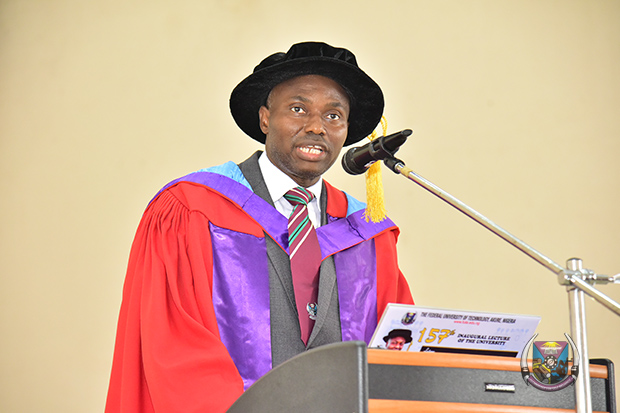

A professor of Urban and Regional Planning at the Federal University of Technology Akure, FUTA, Adebayo Emmanuel, has said that poverty and dearth of economic activities in the rural areas and non-inclusion of the youth in the scheme of things will continue to retard overall development of the country. The don stated this while delivering the institution’s 157th Inaugural lecture on the 18th of July 2003.
Professor Emmanuel who spoke on the topic, “Survival Pursuits and Sustainable Communities: Connecting the Dots”, .said a lack of inclusiveness in the planning process could lead to inequitable development which will disenfranchise the poor in communities. According to him, “The growth of economic and business ventures in rural areas is impeded by a lack of or inefficient infrastructure.” He said a twin strategy of conscious inclusion of rural communities and the youth population in the scheme of things will drive development across the country.
He advocated for equitable development of settlements on a need-basis. According to him this takes development beyond just the major cities and state capitals. He said it is imperative for the government to provide necessary facilities and infrastructure that will improve the standard pf living of rural dwellers thus alleviating poverty in the society and achieving sustainable communities.
Emmanuel also emphasized on the need for extensive mobilization, coordination and support for youth association in communities in order to achieve community youth development. He said this would involve several stakeholders including state and local government, community leaders and NGO’s. According to him when youths invest their youthful energy and current initiatives into community development, it will go a long way in alleviating poverty.
The Don proposed that State governments should invest largely in tourism potentials including the revival of formerly thriving sites and festivals in communities. ”Aside from ecotourism, several other forms of tourism have both physical planning and economic implications and benefits. There is a need for the design and development of tourism and recreation centers within and outside the urban areas, to generate benefits at both the macro and micro scales,” the lecturer said.
He also added that for business and economic development to be facilitated especially in the coastal areas where electricity supply has been a major problem for decades, there should be policy reviews to include power solutions that are environmental friendly and involve more private power generation companies.The Don however noted the positive impact of credit loans on the economic development of coastal settlement and their provision by micro-finance banks while physical planning principles of slum upgrading and urban regeneration have been found to enhance poverty alleviation.
Professor Emmanuel reiterated that equitable development has both economic and physical development benefits for the less privileged in society. He advocated that home-grown, vernacular and indigenous designs should be adopted for infrastructural development, coupled with efficient and effective technology, based on the principle of lean technology, especially to enhance affordable housing and infrastructure.
In her capacity as chairman of the occasion, the Vice Chancellor, Professor Adenike Oladiji, represented by the Deputy Vice Chancellor, Academic, Professor Timothy Amos described the lecturer as an erudite scholar who has contributed immensely to his area of specialization in Urban and Regional Planning. She said his dexterity in delivering the cerebral lecture spoke volumes of his consistency in adding value to the body of knowledge through practical involvement and research